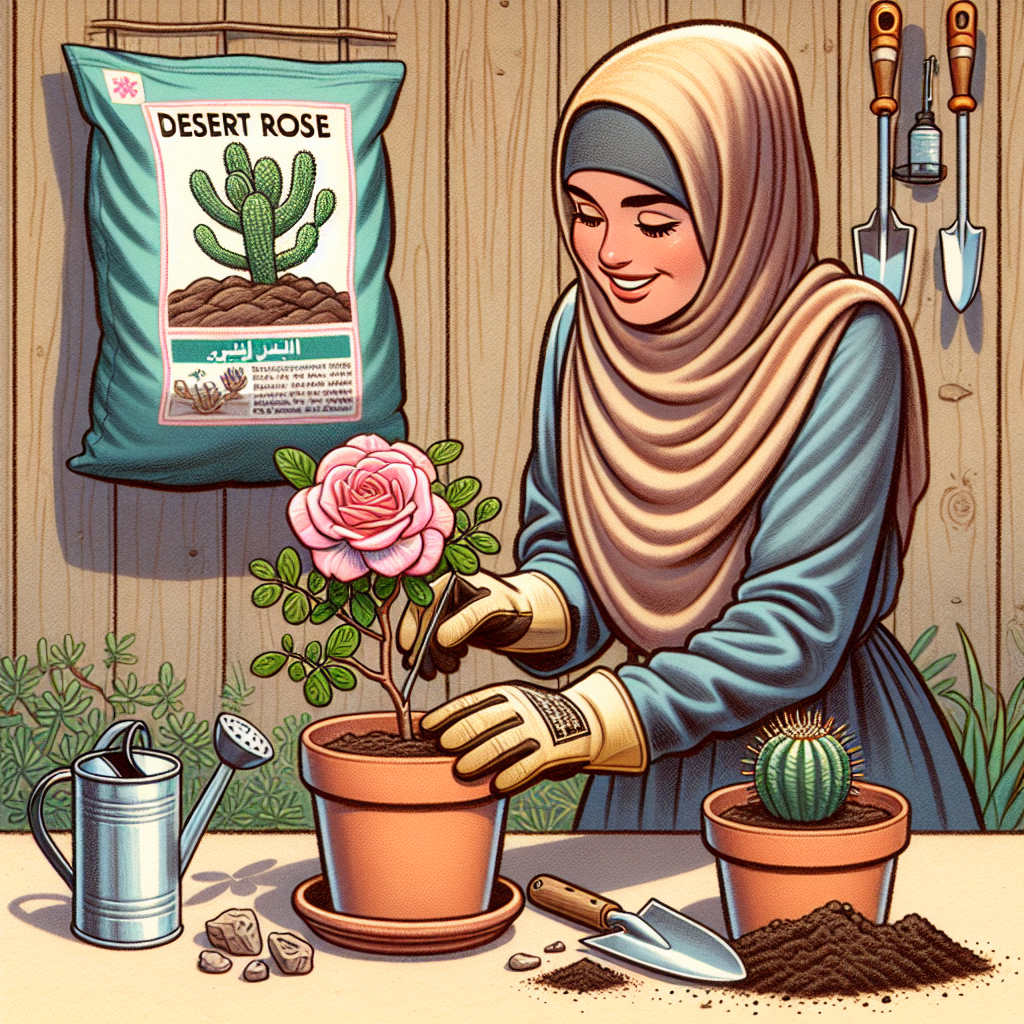
How to plant desert rose in a pot
How to Successfully Plant Desert Rose in a Pot
For many enthusiasts, the desert rose (Adenium obesum) is one of the most captivating plants to grow. Its unique trumpet-shaped flowers and succulent leaves make it a favorite for both seasoned gardeners and novices alike. If you’re considering adding this striking plant to your collection, knowing how to plant desert rose in a pot properly is essential for its growth and bloom.
Understanding the Desert Rose
The desert rose is native to Africa and the Arabian Peninsula, thriving in dry, arid environments. Its succulent nature allows it to store water, making it ideal for warmer climates. Additionally, it is characterized by a swollen caudex at its base, which serves as a water reservoir. When planted in a pot, the right conditions are essential to mimic its natural habitat.
Choosing the Right Pot
Before you plant your desert rose, selecting an appropriate pot is critical. Here are some factors to consider:
- Size: Choose a pot that is slightly larger than the root ball of your desert rose. Ideally, it should be 1-2 inches wider in diameter to allow for growth.
- Material: Traditional clay or ceramic pots are excellent choices as they provide breathability and prevent root rot. However, plastic pots are lighter and easier to manage.
- Drainage: Ensure the pot has sufficient drainage holes to allow excess water to escape, as the desert rose is susceptible to overwatering.
Gathering the Necessary Materials
To ensure a successful planting, gather the following materials:
- Desert Rose Plant: Purchase a healthy plant from a reputable nursery or garden center.
- Potting Soil: Use well-draining cactus or succulent potting mix. You can also make your own mix by combining equal parts of potting soil, perlite, and coarse sand.
- Fertilizer: Choose a balanced liquid fertilizer or a slow-release fertilizer specifically for cacti and succulents.
- Water: Have water on hand for initial watering after planting.
Steps to Plant Desert Rose in a Pot
Now that you have your materials ready, follow these steps to learn how to plant a desert rose in a pot effectively:
1. Prepare the Pot
Begin by filling your chosen pot with the potting soil mix. Fill the pot about halfway, allowing space for the root ball.
2. Remove the Desert Rose from Its Current Pot
Carefully remove your desert rose from its original pot. Gently loosen the roots if they are tightly bound but be cautious not to damage them during this process.
3. Position the Plant
Place the desert rose into the center of the new pot, ensuring that the caudex is above the soil line. This helps prevent rot and allows for the display of its unique trunk.
4. Fill with Soil
Add potting soil around the root ball, gently patting it down to eliminate any air pockets. Make sure to leave a small gap at the top of the pot to allow for watering.
5. Water Thoroughly
After planting, thoroughly water the plant. Ensure the water drains out of the holes at the bottom of the pot, signaling that the roots have received enough moisture. Remember to let the potting soil dry out before the next watering to avoid root rot.
6. Fertilize
Fertilization can promote healthy growth for your desert rose. One month after planting, apply a diluted balanced fertilizer at half strength to encourage blooming.
Optimal Care for Your Desert Rose in a Pot
Once you’ve successfully planted your desert rose, ongoing care is crucial to ensure it thrives. Here are some essential care tips:
Light Requirements
The desert rose loves bright, indirect sunlight. Ideally, place it near a south or southwest-facing window where it can receive around 4-6 hours of sunlight daily. If the plant starts to stretch or become leggy, it’s a sign that it needs more light.
Watering Schedule
Water your desert rose when the top inch of the soil feels dry. Depending on the climate and environmental conditions, this may be every 1-2 weeks. During the winter months, reduce watering, as the plant goes into dormancy.
Temperature and Humidity
Desert roses thrive in warm temperatures ranging from 60°F to 90°F (15°C to 32°C). Avoid exposing them to frost or freezing conditions. They can tolerate low humidity, making them perfect for indoor environments.
Pest Management
Keep an eye out for common pests such as aphids and mealybugs. Use insecticidal soap or neem oil to treat infestations. Moreover, maintain airflow around the plant to prevent fungal diseases.
Repotting Your Desert Rose
As your desert rose matures, it may require repotting every 1-2 years, especially when you notice root bound conditions. Repot in early spring and follow the planting steps as before.
Common Problems and Solutions
Even with the best care, you may encounter some issues with your desert rose. Here are common problems and their solutions:
Problem 1: Yellowing Leaves
“Yellowing leaves can indicate overwatering, under-watering, or nutrient deficiencies.”
Solution: Ensure you are allowing the soil to dry out before watering again. If it’s due to nutrient deficiency, consider fertilizing your plant.
Problem 2: Dropping Leaves
“Leaf drop can be caused by temperature changes or lack of light.”
Solution: Monitor the plant’s environment, ensuring consistent warmth and bright light exposure.
Problem 3: Stunted Growth
“Stunted growth is often a sign of root rot or insufficient light.”
Solution: Inspect the roots; if they appear mushy, consider repotting in fresh, dry soil. Also, evaluate the light conditions for the plant.
Conclusion
In summary, knowing how to plant desert rose in a pot involves careful selection of materials, understanding its care needs, and addressing any potential problems that arise. With the right attention to light, water, and nutrients, your desert rose will reward you with stunning blooms and a unique aesthetic appeal. Enjoy nurturing your desert rose and appreciate the beauty it brings to your space!
By Guest, Published on August 22nd, 2024